David Benavides
FastDiagP: An Algorithm for Parallelized Direct Diagnosis
May 11, 2023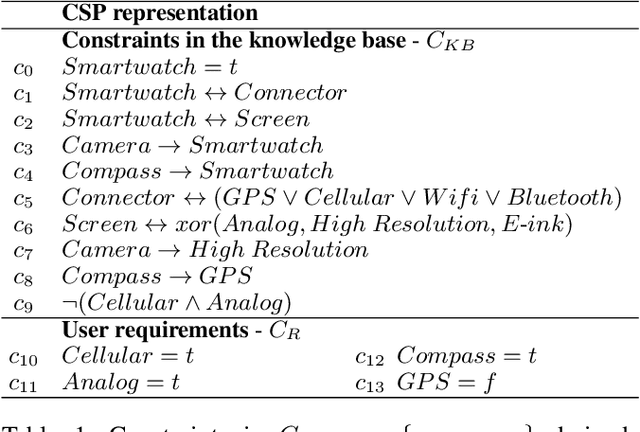
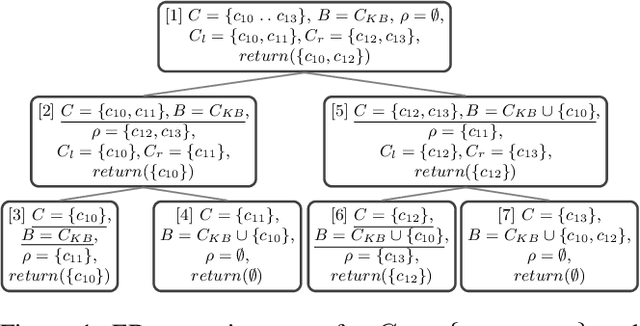

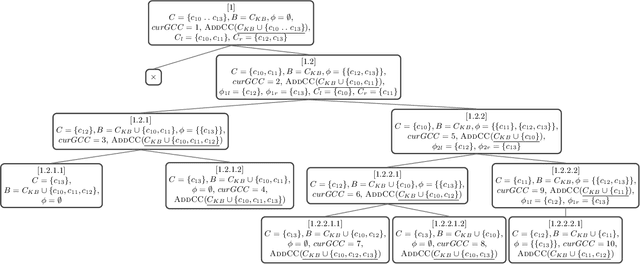
Abstract:Constraint-based applications attempt to identify a solution that meets all defined user requirements. If the requirements are inconsistent with the underlying constraint set, algorithms that compute diagnoses for inconsistent constraints should be implemented to help users resolve the "no solution could be found" dilemma. FastDiag is a typical direct diagnosis algorithm that supports diagnosis calculation without predetermining conflicts. However, this approach faces runtime performance issues, especially when analyzing complex and large-scale knowledge bases. In this paper, we propose a novel algorithm, so-called FastDiagP, which is based on the idea of speculative programming. This algorithm extends FastDiag by integrating a parallelization mechanism that anticipates and pre-calculates consistency checks requested by FastDiag. This mechanism helps to provide consistency checks with fast answers and boosts the algorithm's runtime performance. The performance improvements of our proposed algorithm have been shown through empirical results using the Linux-2.6.3.33 configuration knowledge base.
Anytime Diagnosis for Reconfiguration
Feb 19, 2021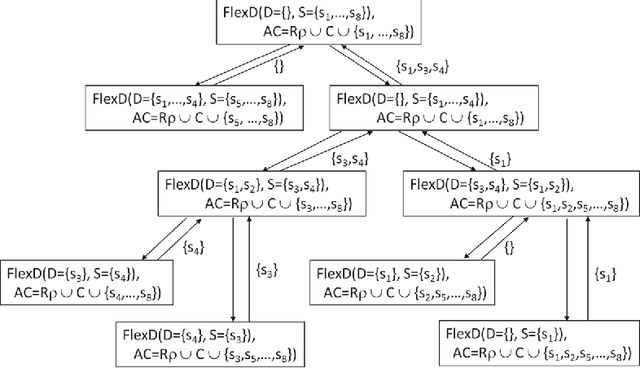

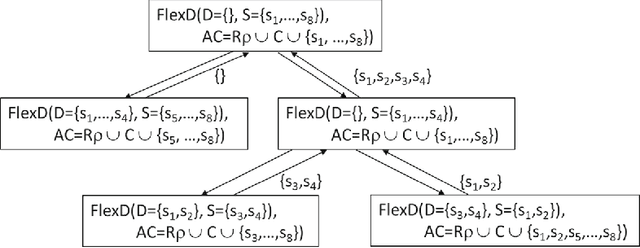
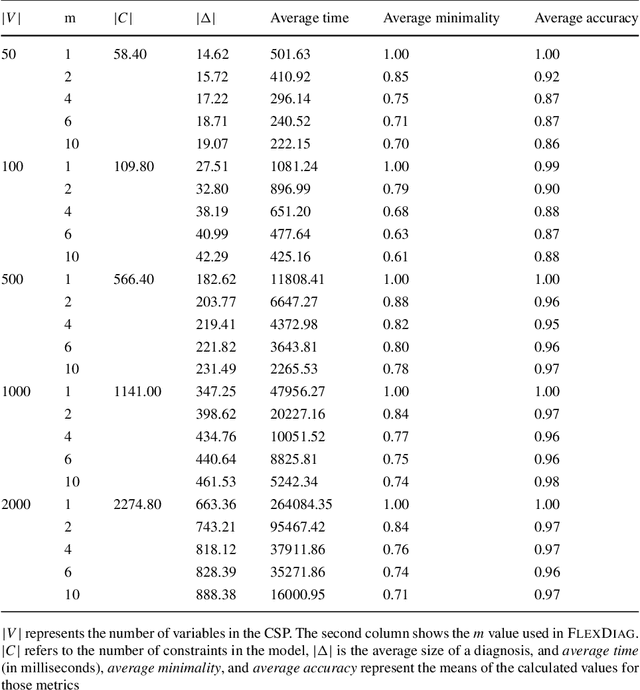
Abstract:Many domains require scalable algorithms that help to determine diagnoses efficiently and often within predefined time limits. Anytime diagnosis is able to determine solutions in such a way and thus is especially useful in real-time scenarios such as production scheduling, robot control, and communication networks management where diagnosis and corresponding reconfiguration capabilities play a major role. Anytime diagnosis in many cases comes along with a trade-off between diagnosis quality and the efficiency of diagnostic reasoning. In this paper we introduce and analyze FlexDiag which is an anytime direct diagnosis approach. We evaluate the algorithm with regard to performance and diagnosis quality using a configuration benchmark from the domain of feature models and an industrial configuration knowledge base from the automotive domain. Results show that FlexDiag helps to significantly increase the performance of direct diagnosis search with corresponding quality tradeoffs in terms of minimality and accuracy.
DirectDebug: Automated Testing and Debugging of Feature Models
Feb 11, 2021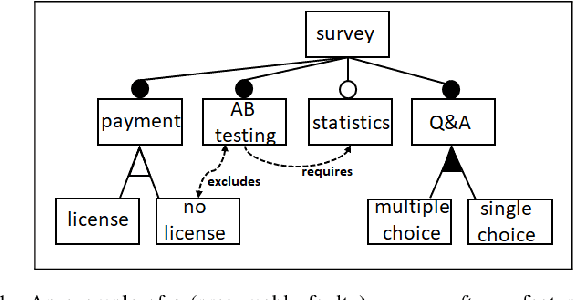

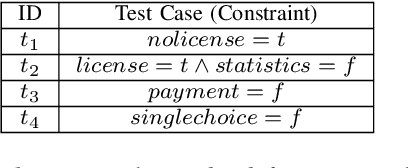

Abstract:Variability models (e.g., feature models) are a common way for the representation of variabilities and commonalities of software artifacts. Such models can be translated to a logical representation and thus allow different operations for quality assurance and other types of model property analysis. Specifically, complex and often large-scale feature models can become faulty, i.e., do not represent the expected variability properties of the underlying software artifact. In this paper, we introduce DirectDebug which is a direct diagnosis approach to the automated testing and debugging of variability models. The algorithm helps software engineers by supporting an automated identification of faulty constraints responsible for an unintended behavior of a variability model. This approach can significantly decrease development and maintenance efforts for such models.
 Add to Chrome
Add to Chrome Add to Firefox
Add to Firefox Add to Edge
Add to Edge